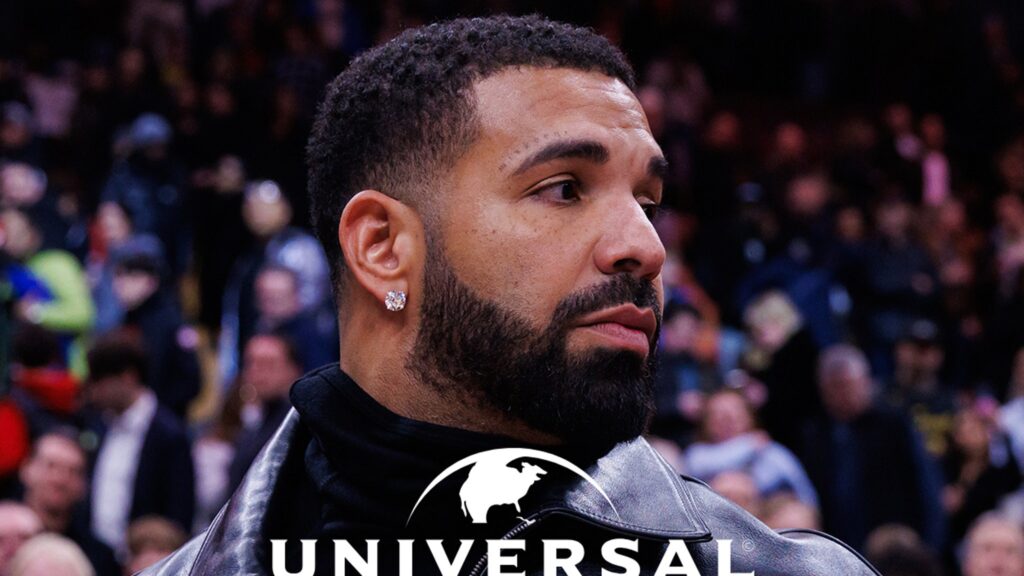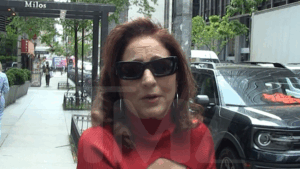
Drake's Label UMG Files Motion to Dismiss His Lawsuit
Drake UMG Lawsuit Dismissal: Label Challenges Defamation Claims Over Kendrick Lamar Lyrics
Published: May 8, 2025
Table of Contents
Universal Music Group has filed a motion to dismiss Drake’s defamation lawsuit over Kendrick Lamar’s “Not Like Us” lyrics.
Universal Music Group (UMG) has filed a motion to dismiss the high-profile Drake UMG lawsuit centered on Kendrick Lamar’s controversial track “Not Like Us.” The label’s legal team has identified what they describe as a fundamental flaw in Drake’s defamation claims, pointing to a critical misunderstanding about Kendrick Lamar’s Super Bowl LIX halftime performance.
The Drake UMG lawsuit has been making headlines in the music industry since its filing, representing one of the most significant legal battles between a major artist and their label in recent years. This latest development signals UMG’s aggressive stance in defending against Drake’s allegations that the company facilitated defamation through Kendrick Lamar’s lyrics.
UMG’s Motion to Dismiss Drake’s Lawsuit
In court documents filed this week, Universal Music Group’s legal team outlined their argument for dismissal of the Drake UMG lawsuit, focusing on a crucial detail from the amended complaint. According to UMG, Drake’s legal team made a significant error when they amended their lawsuit following Kendrick Lamar’s widely-watched Super Bowl performance.
The core of UMG’s dismissal argument centers on the fact that Kendrick Lamar never actually uttered the phrase “certified pedophile” during his Super Bowl performance, contradicting a key claim in Drake’s amended lawsuit. While the Superdome crowd may have chanted these controversial lyrics, UMG argues this cannot be attributed to Kendrick Lamar or the label.
This technical but crucial distinction forms the foundation of UMG’s defense strategy, as they contend that Drake’s legal team has fundamentally mischaracterized what occurred during the halftime show. By challenging this factual basis, the label aims to undermine the entire premise of Drake’s defamation claims in the ongoing Drake UMG lawsuit.
The Super Bowl Performance Controversy

Kendrick Lamar’s Super Bowl LIX halftime performance became a focal point in the ongoing legal dispute. (Credit: Apple Music/NFL)
The controversy around Kendrick Lamar’s Super Bowl halftime show has become a central element in the Drake UMG lawsuit dismissal motion. During the performance, which was watched by over 100 million viewers, Kendrick performed portions of “Not Like Us,” his diss track aimed at Drake that had already ignited significant controversy in the hip-hop community.
According to court filings, Drake’s legal team claimed that Kendrick’s performance of the song, which contains lyrics referring to Drake as a “certified pedophile,” amplified the defamatory impact of the original track. However, UMG’s response highlights that Kendrick deliberately omitted those specific lyrics during the broadcast, though the crowd in attendance can be heard chanting them in videos of the performance.
| Claimed in Drake’s Lawsuit | UMG’s Counter-Argument |
|---|---|
| Kendrick Lamar called Drake a “certified pedophile” during the Super Bowl halftime show | Kendrick never actually spoke those words; the crowd chanted them |
| UMG is liable for allowing defamatory content to be broadcast | UMG cannot be responsible for audience reactions or chants |
| The performance expanded the reach of defamatory statements | Kendrick specifically avoided the controversial lyrics during the broadcast |
This distinction is critical to UMG’s argument for Drake UMG lawsuit dismissal, as they contend that neither they nor Kendrick can be held legally responsible for the audience’s actions during a live performance. Legal experts suggest this could potentially weaken Drake’s case if the court accepts UMG’s interpretation of the events.
UMG’s Rap Lyrics Defense Strategy
Beyond the specific Super Bowl performance details, UMG’s motion for Drake UMG lawsuit dismissal embraces a broader argument about the nature of rap lyrics themselves. The label contends that hip-hop lyrics, particularly in the context of a rap battle, should be understood as hyperbole and artistic expression rather than factual statements.
UMG’s defense strategy emphasizes that rap lyrics are a form of artistic expression that frequently employ exaggeration, metaphor, and provocative language as creative devices. They argue that this context is essential to understanding such lyrics and that they should not be interpreted as literal factual assertions in a legal context.
To illustrate this point, UMG’s legal team references Drake’s own lyrics from “The Heart Part 6,” where the artist made several inflammatory claims about Kendrick, including allegations that:
- Kendrick’s child was fathered by another man
- Kendrick is a domestic abuser
- Drake threatened to “slit his throat with a razor”
UMG argues that these statements by Drake clearly represent artistic exaggeration rather than factual claims or literal threats, just as Kendrick’s lyrics should be similarly contextualized. This approach to the Drake UMG lawsuit attempts to frame the entire dispute as an artistic exchange rather than a matter for defamation law.
Drake’s Previous Position on Rap Lyrics

Court documents from the ongoing Drake-UMG legal battle reveal a potential contradiction in Drake’s position on rap lyrics. (Credit: TMZ.com)
In a particularly pointed aspect of their Drake UMG lawsuit dismissal motion, Universal Music Group has highlighted what they characterize as a contradiction in Drake’s position. The label’s legal team referenced a public petition that Drake signed approximately three years ago, which criticized prosecutors for using rap lyrics as evidence in criminal cases against artists.
The petition, which was reported by Rolling Stone magazine, represented a collective stance by numerous hip-hop artists against the practice of treating artistic expression as literal statements for legal purposes. UMG’s motion directly quotes this previous position, stating that “Drake was right then and is wrong now,” suggesting that the artist’s current lawsuit fundamentally contradicts his previously expressed views.
UMG characterizes Drake’s lawsuit as merely “an attempt to save face for his unsuccessful rap battle with Lamar” rather than a legitimate legal grievance. This framing attempts to position the Drake UMG lawsuit as being motivated by personal and professional embarrassment rather than genuine legal harm.
This strategy attempts to paint Drake’s legal action as hypocritical and inconsistent with his own publicly stated principles regarding how rap lyrics should be interpreted in legal contexts. Legal analysts suggest this could potentially influence the court’s perception of Drake’s motivations in filing the lawsuit.
Legal Implications for Music Industry
The Drake UMG lawsuit and its potential dismissal carry significant implications for the broader music industry, particularly regarding how artistic expression is treated in legal settings. The case raises important questions about the boundaries between creative freedom and defamation, especially in competitive or confrontational artistic contexts like rap battles.
Entertainment law experts have noted several key questions that this case brings to the forefront:
- To what extent should rap lyrics be protected as artistic expression even when they contain potentially defamatory content?
- What responsibility do record labels have for monitoring and restricting potentially defamatory content in their artists’ work?
- How should courts distinguish between hyperbole in artistic contexts and actual defamatory statements?
- What precedent could this Drake UMG lawsuit set for future disputes between artists or between artists and their labels?
The outcome of this case could potentially influence how labels approach controversial content in the future, possibly leading to more restrictive contracts or more cautious approaches to releasing material that contains personal attacks on other public figures.
Timeline of the Drake-Kendrick Feud Leading to the Lawsuit
| Date | Event |
|---|---|
| Early 2025 | Initial exchanges of subtle disses in various tracks |
| March 2025 | Drake releases “The Heart Part 6” with direct attacks on Kendrick |
| April 2025 | Kendrick responds with “Not Like Us” containing the controversial lyrics |
| February 2025 | Kendrick performs at Super Bowl LIX, audience chants controversial lyrics |
| March 2025 | Drake files initial lawsuit against UMG |
| April 2025 | Drake amends lawsuit to include Super Bowl performance |
| May 2025 | UMG files motion to dismiss the Drake UMG lawsuit |
Impact on Drake-UMG Business Relationship
Beyond the immediate legal considerations, the Drake UMG lawsuit raises significant questions about the future relationship between one of music’s biggest stars and the industry’s largest label group. Drake has been one of Universal Music Group’s most commercially successful artists, generating billions in revenue through album sales, streaming, and associated marketing deals.
Industry analysts note that regardless of the legal outcome, the current litigation creates an awkward and potentially unsustainable business relationship. As UMG’s motion to dismiss notes in its conclusion, a dismissal of the lawsuit “would end their legal war, [but] it sure would make things awkward at their next business meeting.”
This understated acknowledgment hints at the deeper complications that this dispute creates for both parties:
- Potential impact on marketing and promotion of Drake’s future releases
- Complications in contract negotiations for future projects
- Possible reluctance from UMG to invest significantly in an artist currently suing them
- Strain on personal relationships between Drake and UMG executives
Music industry veterans suggest that such public and contentious legal disputes between artists and their labels rarely conclude without significant changes to their working relationship, raising questions about Drake’s long-term future with the label regardless of the Drake UMG lawsuit dismissal motion’s outcome.
As this story continues to develop, the court’s decision on UMG’s motion to dismiss will be closely watched by legal experts, music industry professionals, and fans alike. The ruling could set important precedents for how artistic expression is balanced against defamation concerns in an era where music feuds often play out across multiple platforms and reach unprecedented audiences.
The Drake UMG lawsuit represents more than just a personal dispute between two of hip-hop’s biggest stars—it potentially establishes significant legal parameters around artistic expression, label responsibilities, and the evolving understanding of how rap lyrics should be interpreted in legal contexts. Whatever the outcome, this case will likely influence how artists and labels approach similar situations for years to come.







